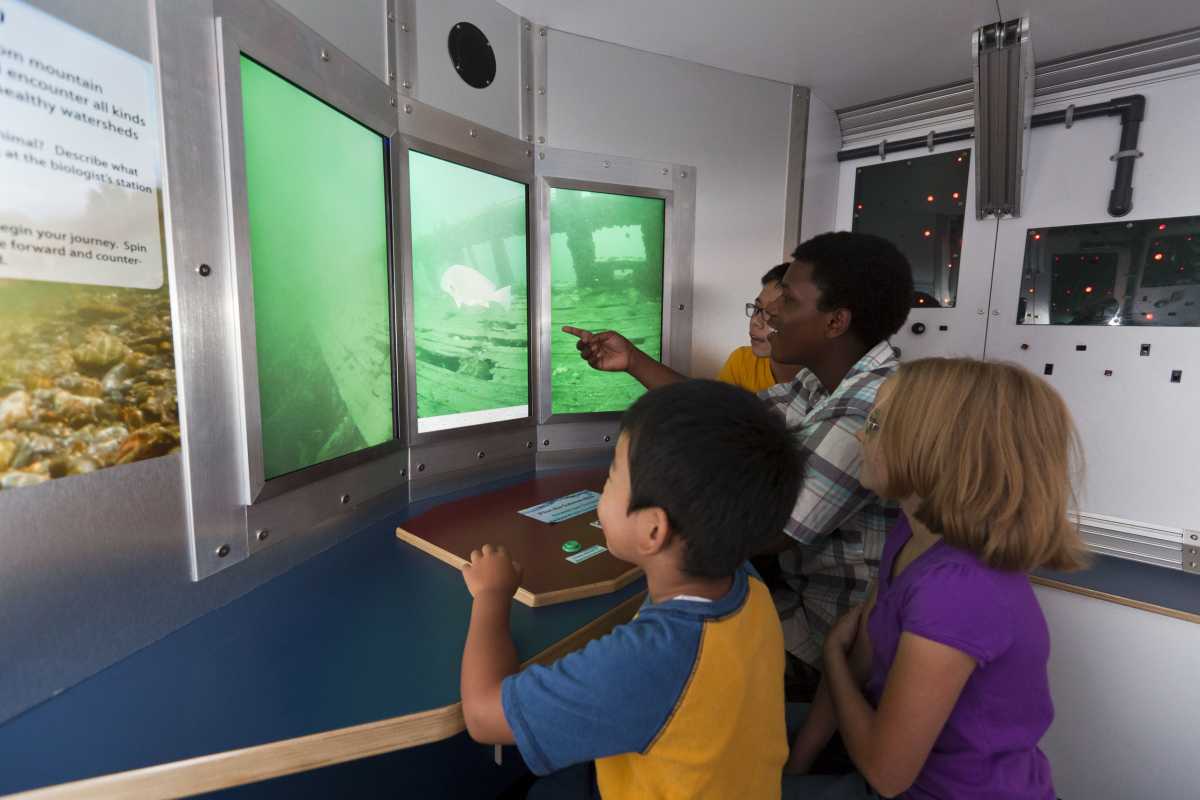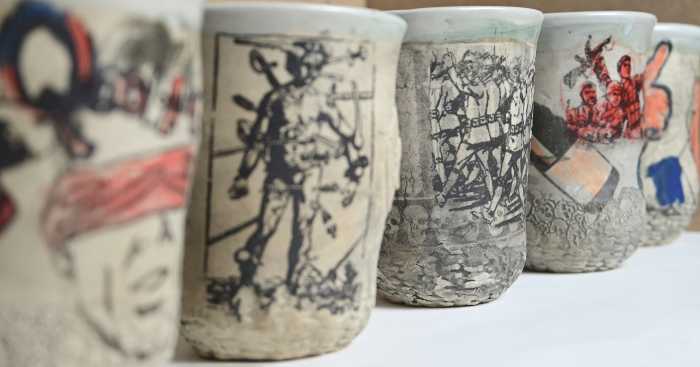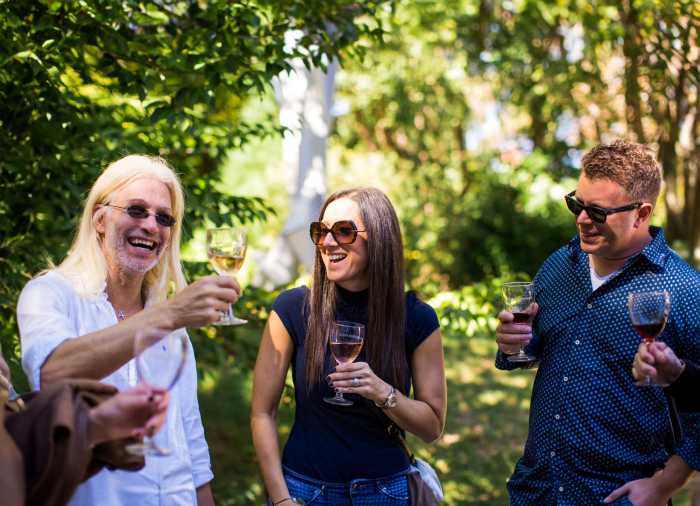The Academy of Natural Sciences at Drexel University is continuing its Water Year 2022 celebration with another educational and engaging showcase.
Earlier this year, the venue offered Philadelphians the opportunity to take a peek into newly discovered life forms, bubbling thermal vents, compact research submersibles, and shipwrecks—all through ‘Extreme Deep: Mission to the Abyss.’
The exhibit, which was on display in the spring through July, showcased 500 newly discovered species at the Academy of Natural Sciences—which spanned crinoids, charismatic shrimp, anglerfish, ghosties and assfish (yes, that’s not a typo). ‘Extreme Deep’ also highlighted recent technology that has allowed scientists to travel to the ocean floor and discover the creatures that call it home.
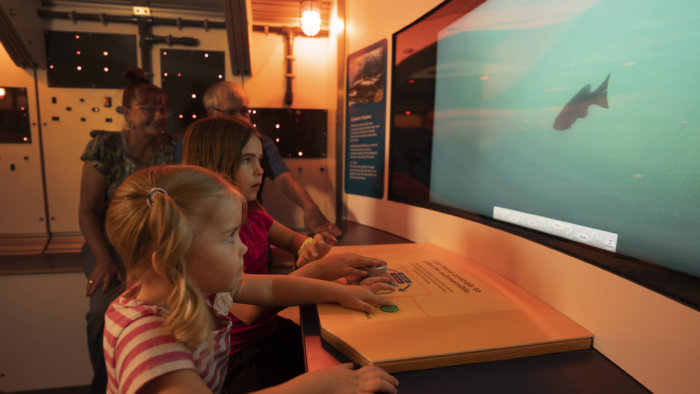
Throughout the summer, the Academy of Natural Sciences also embarked on another journey. Along with the Philadelphia Water Department and BOMA Philadelphia, the three organizations worked together to showcase Plastic Free Philly—a volunteer effort led by the Academy that aims to reduce the flow of single-use plastic water bottles and replace them with environmentally healthier, more affordable options. These options include drinking clean, safe tap water and using reusable bottles.
To drive the idea of putting an end to plastic in the city, Plastic Free Philly officially kicked off in June with a new series of art installations. The first, “Forest,” is a sculpture of vertical tree trunks made of plastic bottles, which is still on display in the lobby of 1500 Market Street.
The artwork by Kate Dodd of Orange, New Jersey, is one of 10 original pieces by mostly Philadelphia-area artists commissioned by the Academy and set up in prominent Center City and University City buildings to raise awareness about the issue, a release states. The temporary installations evoke the natural beauty of the Delaware River Watershed and examine how people’s habits positively and negatively impact the ecosystem.
The latest exhibition also focuses on our local impact, or more so, how we all affect the ocean no matter where we live. ‘Ocean Bound’ recently opened at the venue, and will be on display until Jan. 15 of next year.
“No matter where we live, we all depend on the ocean and its vast resources for medicine, jobs, oxygen, food and so much more,” said Academy President and CEO Scott Cooper in a statement. “A healthy ocean is one of our greatest environmental challenges, and we all need to do our part to keep it vital by starting right in our own communities.”
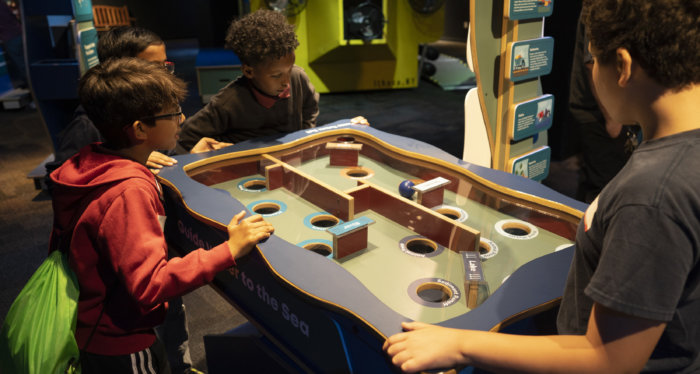
The latest showcase from the Academy uses hands-on activities to explain different environmental and personal impacts we can have on the planet, specifically relating to water. It’s through these activities, and also videos, that guests are able to understand what a watershed is, recognize threats to the watershed, identify solutions to problems, and even how to implement change.
And some of it is quite surprising.
Guests can sift through particles (or in this case, small grey orbs) to find one red orb—and what it represents is the single part per million of many contaminants that can be harmful to a system of water. It seems so minute in the moment, but when looking at the facts of what something so small can contaminate, it’s jarring. But it’s also meant to be educational.
There are different stations showcasing the effects of irrigation, the importance the ocean has on our own lives, how to reduce our own waste, and how we all live in a watershed ourselves.
Another activity, according to the release, helps guests understand Storm Drain Downers through a kinetic ball machine designed to mimic how water and pollutants flow into neighborhood storm drains and right through to streams and rivers. Along the various paths, users attempt to divert the pollutants (colored balls) while allowing water (blue balls) to travel through to the ocean.
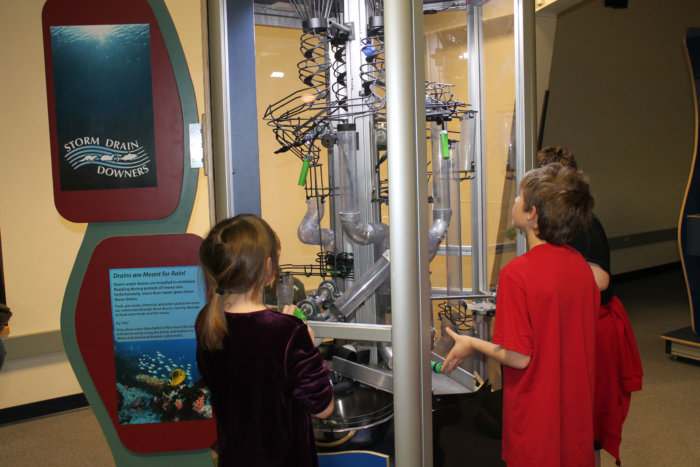
Throughout ‘Ocean Bound’ visitors themselves can get the immersive experience of what goes on in our water system, and also, have a space to educate kids about what is happening with climate change and what we can do to help through fun activations. It’s hands-on and thought-provoking, and it’s also a great way to learn a bit more about the world we occupy.
To learn more about ‘Ocean Bound’ and The Academy of Natural Sciences (1900 Benjamin Franklin Pkwy), visit ansp.org



